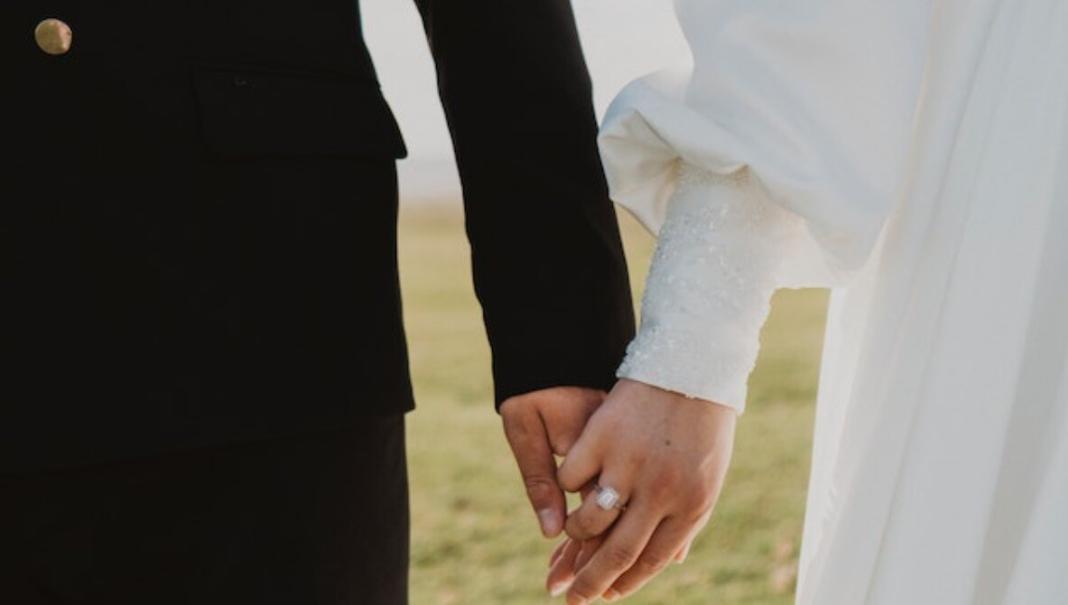Many countries all around the world have a long-standing custom of arranged marriages. In this tradition, parents or other family members take the lead in choosing a marriage for a person, frequently based on traits including compatibility, social standing, and similar ideals.
Because they represent ingrained customs, strong family values, and the protection of cultural heritage, arranged weddings are of great cultural significance. Arranged weddings continue to be a traditional and significant part of marital traditions in many places, even though attitudes and practices around them may differ significantly from one culture to another.
The History and Evolution of Arranged Marriages
Arranged marriages have been a significant aspect of human societies for millennia. In ancient Mesopotamia, Egypt, and India, marriages were often orchestrated to maintain familial legacies and community stability. Over time, arranged marriages have evolved significantly, focusing on balancing practicality and individual choice, emphasizing compatibility and mutual consent. Globalization has played a pivotal role in reshaping the practice, as the world has become increasingly interconnected, resulting in a fusion of traditional and modern elements in the matchmaking process.
Gender roles within arranged marriages have also evolved due to a growing trend towards more egalitarian arrangements where both parties, regardless of gender, have a significant say in choosing their life partner. Technological advancements have also modernized the practice, offering a broader range of options and facilitating connections with potential spouses.
Due to modernization and globalization, societal perceptions of arranged marriages have changed, with individuals now having more autonomy to choose their life partners, leading to a greater emphasis on personal compatibility and emotional satisfaction. Additionally, improved access to education and career opportunities has empowered individuals, resulting in changing expectations within arranged marriages, focusing on mutual respect and shared life goals.
Evolving social norms have led to a growing acceptance of love marriages alongside arranged marriages, reflecting a broader spectrum of relationship choices and preferences. In multicultural societies, arranged marriages often blend traditional customs with modern values, highlighting the complexities of cultural adaptation in our increasingly diverse world.
The Role of Family in Arranged Marriages
Family plays a crucial and influential role in arranged marriages, influencing the process across various stages and varying in significance depending on cultural, social, and individual contexts. Families often take on the responsibility of finding a suitable match for their son or daughter, considering factors such as the other family’s background, social status, values, and compatibility.
Families also facilitate initial meetings between prospective partners, allowing individuals to assess compatibility through formal or informal interactions while providing guidance and support. Traditional arranged marriages cover various aspects of the union, including dowries, financial arrangements, and the terms of the marriage. Contemporary arrangements prioritize the consent and wishes of both parties.
Throughout the process, families provide emotional support and guidance, addressing concerns and helping children make informed decisions about the proposed marriage. They ensure that the arranged marriage adheres to cultural and traditional norms, organizing ceremonies, rituals, or celebrations that symbolize the union and uphold customs.
Families also consider broader social and economic factors, such as preserving or improving their social status, securing alliances, or managing financial resources. In disagreements or disputes, families can mediate and resolve issues, providing stability and a support system during the early stages of the marriage.
Arranged marriages often strengthen inter-generational bonds within families, viewed as a continuation of family traditions and values. Families maintain a sense of responsibility for their children’s well-being and happiness, offering advice and assistance during significant life events and challenges.
Arranged Marriages vs. Love Marriages: Debunking Myths
Arranged marriages have always been a subject of curiosity and misconceptions. One common myth is that they lack love and are solely driven by practical considerations. However, love can blossom in arranged marriages as couples spend time together and build emotional connections. Love is a genuine and evolving component in many arranged marriages.
Following forced marriages, both parties typically provide their consent, albeit often influenced by family recommendations. Arranged marriages often involve thoroughly considering family compatibility factors, which can contribute to harmonious relationships. Compatibility in arranged marriages extends beyond emotional attraction to include shared values, goals, and cultural backgrounds.
The belief that arranged marriages are stagnant traditions resistant to change is also only partially that arranged marriages have evolved to incorporate modern elements, allowing individuals to choose their partners. These unions can reflect a balance between traditional and contemporary values, adapting to the changing dynamics of society.
In comparing arranged marriages to love marriages, it is essential to recognize that they have distinct origins and dynamics. Love marriages stem from personal choice and romantic attraction, while arranged marriages often begin with family involvement, considering both practical and emotional compatibility. Both types of marriages can lead to successful, fulfilling relationships, and the presence or absence of love at the outset does not necessarily determine the happiness and longevity of the union. Understanding the diverse ways love and commitment manifest in the complex landscape of marriage is crucial.
The Contemporary Approach to Arranged Marriages
The practice of arranged marriages has undergone significant transformations in recent years, reflecting the evolving dynamics of contemporary societies. The modern approach emphasizes the consent and choice of individuals involved, with prospective partners now playing a more active role in the decision-making process. Compatibility and shared values are crucial factors in partner selection, with families and individuals considering various aspects such as education, career aspirations, interests, and cultural alignment.
Gender roles in arranged marriages are transforming greater equality, with women having increased agency in selecting their partners. Communication is pivotal in this modern approach, with prospective partners encouraged to discuss their expectations, aspirations, and concerns openly. Families continue to play a supportive role, providing emotional support, guidance, and a safety net for the couple during the initial stages of the marriage.
Technology has played an essential role in modernizing arranged marriages, with matrimonial websites, social media platforms, and dating apps expanding the pool of potential partners and streamlining the process of connecting with them. Contemporary arranged marriages often balance traditional customs and modern values, incorporating cultural rituals and ceremonies while upholding principles of autonomy and equality.
The evolution of arranged marriages varies across cultures and regions, with some societies embracing these changes more rapidly while others still adhere to more traditional practices.
Challenges and Considerations
Arranged marriages, adapting to contemporary contexts, come with challenges that individuals and families must navigate thoughtfully. Balancing autonomy and choice within the context of family involvement in partner selection is a delicate task. Striking a harmonious compromise between tradition and personal preferences ensures both parties feel empowered.
Effective communication and compatibility are vital in arranged marriages, but achieving these can be challenging. Open and honest conversations about expectations, values, and life goals are fundamental to building a solid relationship foundation.
Arranged marriages often bring together partners from similar cultural and religious backgrounds to ensure compatibility. Navigating potential differences in these areas may require patience, understanding, and a willingness to compromise to foster a harmonious home environment. While family support is integral to arranged marriages, managing family dynamics can be complex. Establishing healthy boundaries and maintaining open communication within the family is crucial.
Due to the structured nature of arranged marriages, emotional attachment might develop slowly. Both partners must invest time and effort to nurture emotional intimacy and understanding. Managing expectations and being open to adaptation as the relationship evolves are critical to a successful partnership. External pressures, such as societal expectations, peer comparisons, and cultural norms, can also affect couples in arranged marriages.
While arranged marriages emphasize compatibility, respecting each other’s individuality and allowing for personal growth within the marriage is equally vital. Recognizing that both partners have unique identities and interests contributes to a harmonious relationship. Building a robust support network beyond the immediate family is crucial; friends, mentors, and counseling resources can offer guidance and provide a safe space to discuss challenges and seek solutions.
Conclusion
Arranged marriages, deeply rooted in tradition, have evolved to embrace contemporary values and individual autonomy. They have undergone significant changes as societies modernize and globalize, emphasizing individual consent, compatibility, and shared values. This evolution challenges the misconception that arranged marriages are solely practical and tradition-bound.
Comparing arranged and love marriages reveals that both can lead to fulfilling unions. Arranged marriages prioritize family involvement in partner selection, while love marriages focus on personal choice and romantic love. In this complex landscape, communication, mutual respect, and adapting to modernity while preserving cultural heritage are crucial for the success of any marriage, emphasizing the ongoing relevance and adaptability of arranged marriages in our changing world.
You may also want to read,







